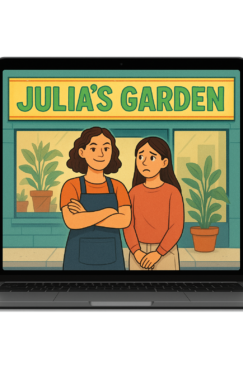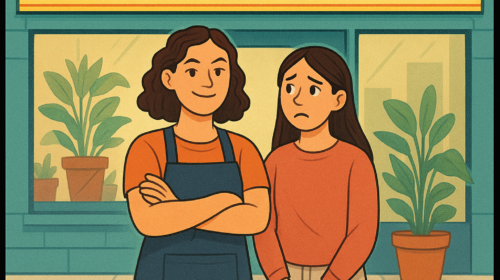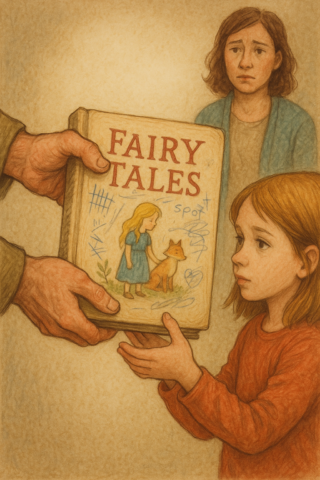When your sibling achieves something big, you want to be the first to cheer them on. But what happens when your sister’s latest achievement comes at the expense of your own identity? That’s the awkward, emotional, and downright confusing territory I stumbled into when my sister, Natalie, launched her new business—using my name as the brand.
The Day I Found Out
It started innocently enough. One Saturday morning, I was scrolling through Instagram when I saw an ad: “Introducing Julia’s Garden—Handmade Bath & Body Products.” My name, Julia, in swirling cursive on a pastel logo. At first, I assumed it was a coincidence. Maybe it was another Julia, maybe it was just a placeholder name. But when I clicked through the profile, I saw Natalie’s smiling face in the bio, a “thank you to my amazing sister Julia for lifelong inspiration,” and a story highlight labeled “My Sister.”
My phone buzzed with texts from friends:
“Is this your company?”
“Did you go into business with Natalie?”
“I love your new products!”
Except, I had nothing to do with it.
The Confrontation
I called Natalie, trying to keep my voice light. “Hey, I saw your business launch! Looks great. But… why Julia’s Garden?”
She sounded proud, almost giddy. “It’s catchy, don’t you think? And you’ve always loved flowers. You inspired me to start making these bath bombs in the first place. I wanted to honor you!”

I didn’t know whether to be flattered or furious. “But Nat, people think it’s my business. I’m getting all these messages. I didn’t even know you were planning this.”
She was silent for a moment, then defensive. “I didn’t think it would be a big deal. You’re my sister. I thought you’d love it!”
Navigating Hurt and Pride
For days, I wrestled with mixed emotions. Natalie had always been the dreamer, the one who dove headfirst into projects and passions. I’d always been the grounded one, the “responsible” sister. Maybe she meant it as a tribute. But as the brand gained followers, and our friends started associating me with the company, I felt my sense of self get tangled up in something I hadn’t chosen.
Our parents thought it was “sweet.” My friends were divided—some thought I should feel honored, others called it “identity theft lite.” I wondered what would happen if the business flopped, or if it became wildly successful. Would I always be linked to something I didn’t create?
The Honest Conversation
Finally, I asked Natalie to meet for coffee. I told her honestly how I felt: “I appreciate the thought, but my name is a big part of who I am. I want to support you, but I also want people to know that this is your business, not mine. Could we add your name somewhere, or at least make it clear that I’m not the owner?”
She looked surprised, even a little hurt. “I just wanted to make you proud. But I see what you mean. Maybe I rushed it.”
We talked it out. Natalie agreed to change the website and social profiles to “Julia’s Garden by Natalie Rose.” She posted a public update: “Inspired by my sister, but built by me.” I helped her brainstorm new marketing ideas, and even agreed to pose for a photo on the “About” page—this time, as the proud sibling, not the secret cofounder.
What I Learned
Family and business rarely mix smoothly. Even the best intentions can blur boundaries. I learned that it’s okay to speak up, even when you love someone. Your name, your story, and your identity are worth protecting—and a real tribute never comes at the cost of your comfort.
I also learned that setting boundaries doesn’t mean ending relationships; sometimes, it’s how you save them.
Moving Forward
Julia’s Garden is thriving, and now it’s clear whose vision is behind it. Natalie and I are closer, because we chose honesty over silent resentment. We celebrate each other’s wins, knowing that love sometimes means asking for the respect you deserve.
Final Thought
If someone borrows your name—especially family—don’t be afraid to ask for what feels right. You can honor each other without erasing the line between tribute and ownership. In the end, every garden grows best with room for both roots and boundaries.



